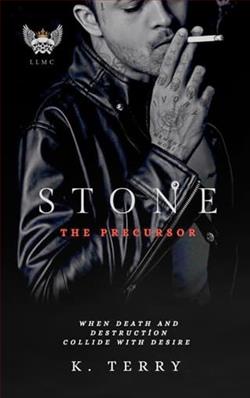Page 82 of Code Name: Reaper
“I’ll cut to the chase, Dad. What do you remember about investigations or scandals in the industry?”
“Where do I start?” My father refilled his wineglass. “In those days, the defense world was cutthroat. The Cold War was over, budgets were shrinking, and companies were scrambling to stay profitable.”
Amaryllis leaned forward. “What did that look like from your perspective?”
“Aggressive bidding wars, for one thing. Companies would underbid contracts significantly, then find creative ways to inflate costs during execution. Change orders, scope creep, ‘unforeseen technical challenges’—you name it.”
“Was Cerberus involved in any of that?” I asked.
“Not directly, though we weren’t saints, either. But we focused on legitimate technical innovation rather than gaming the system.” He paused. “Others weren’t so ethical.”
“Was there anyone specific?” Amaryllis prompted.
“Northbridge Technologies was notorious for it. They’d bid twenty percent under everyone else, win the contract, then somehow, the final cost would be triple the original estimate. Every single time.”
“How did they get away with it?”
“Relationships. Their executives were former Pentagon officials who knew exactly which buttons to push and which palms to grease.” My father’s expression darkened. “There were rumors about defense officials receiving consulting contracts with these companies after they retired. Lucrative ones.”
“Revolving-door corruption,” I said.
“Exactly. But proving it was impossible. Everything was technically legal—former officials waiting the required cooling-off period, consulting arrangements that looked legitimate on paper.”
“Did you ever witness anything directly?” Amaryllis inquired.
My father was quiet for a moment. “There was a procurement meeting where a Pentagon official practically telegraphed which company was going to win a major contract. There were very specific technical questions that only one bidder was able to answer correctly. The whole thing was theater.”
“What happened to that official?” I asked.
“He retired six months later. Northbridge Technologies hired him as a senior consultant weeks later.”
“How widespread was this?” Amaryllis asked.
“More than anyone wanted to admit. The smart companies played the game, the ethical ones lost contracts, and the government got overpriced junk.” He shook his head. “There were whispers that some investigators were starting to connect the dots, building cases that could bring down major players.”
“Whispers?” I pressed.
“And then it all vanished into the ether, as they say.”
“Meaning?” Amaryllis asked.
“The chatter stopped. Like someone turned off a switch.”
I leaned forward and rested my elbows on the table after pushing my plate out of the way. “Does the name Avalon mean anything to you?”
My dad thought for a few seconds. “Not to me.” He looked at my mom. “You?”
“I don’t recall hearing it. Who were they? Another contractor?”
“Something like that.”
While my parents were momentarily confused, they caught on quickly.
“What about Minerva?” Amaryllis prompted.
“I do remember that name, but probably not in the same context,” said my mother. “It was the code name of a legendary CIA agent. James Bond-type almost.”
Amaryllis leaned forward like I had. “What happened to him?”















